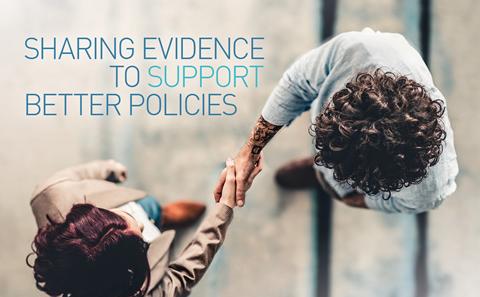
Policy Projects
Learn about PPS led current collaborative projects between the University of Southampton researchers and UK Government and Parliament.
25 February 2023
The Responses to Alcohol and Pregnancy Project (RAPP) seeks to understand what midwives in the U.K. think about proposals to introduce mandatory alcohol screening during antenatal care. It is a collaborative project between the University of Southampton and the Centre for Reproductive Research and Communication (CRRC) at the British Pregnancy Advisory Service (BPAS), funded by Public Policy|Southampton’s “New Things Fund”.
The research team is interdisciplinary. Our Principle Investigator is Fiona Woollard, a Professor in Philosophy at the University of Southampton. Our Co-Investigators are Rachel Arkell, a Research and Projects Officer at CRRC, and Rebecca Brione, a bioethics researcher and public policy expert.

Our team came together in 2020 during the consultation period for a new Quality Standard to be developed by the National Institute for Health and Care Excellent (NICE): The Quality Standards on Foetal Alcohol Spectrum Disorders (FASD) – an umbrella term used to describe a range of conditions associated with alcohol exposure during pregnancy. The Quality Standards drew on a piece of Scottish Guidance – Guidelines 156: Children and Young People Exposed Prenatally to Alcohol. The Scottish Guidance called for the mandatory screening of all pregnant people for their alcohol use during pregnancy. The Guidance recommended documenting full patterns of alcohol consumption (dose and frequency), in addition to the use of validated screening tools aimed at identifying ‘risky’ consumption. This information was to be transferred to the child’s health record after birth.
This Guidance was the first of its kind in the UK; calling for a radical expansion of what could be expected in ‘routine’ antenatal care – both from the perspective of patients and those providing care. This Guidance was created without any public consultation, and instead, used international guidance as its basis. It drew on the Canadian Guidance for FASD as its primary source but included some substantial revisions. Guidance 156 removed a lower threshold for recording alcohol to serve diagnostic purposes, meaning any amount of alcohol should be recorded. The rationale for doing so did not make any reference to evidence pointing to a causal relationship between low level consumption and harm, but rather was intended to ‘make it consistent’ with the UK’s ‘precautionary’ approach to alcohol use in pregnancy.
When reading the consultation documents for the NICE Quality Standard on FASD, our team noticed the emphasis on solving the health inequality caused by missing alcohol information. As noted in the second iteration of the Equality Impact Assessment for the Quality Standard, published during the pre-consultation stage, children who do not live with their biological parents (such as looked after children and adopted children) may experience inequalities in terms of access to appropriate care and support. This is mainly attributed to missing information relating to their mother’s alcohol consumption, as this information is not recorded on children’s health records. This is the only equality issue that was identified by the development team at the time of the consultation.
Our research team contributed to a consultation submission, led by the British Pregnancy Advisory Service (BPAS) – one of the UK’s leading reproductive health charities. Within our joint consultation response, which included submissions by leading academics across the UK, the impact on both patients and midwives were stressed repeatedly. Many of us were concerned that there had not been enough consideration of the privacy and confidentiality implications of screening pregnant people without explicit mention of consent. This has a further effect on the midwifery profession, which would be tasked with carrying out these proposals.
RAPP was founded to add midwives’ perspectives to the policy debate.
We ran an anonymous survey and conducted a small number of interviews. Initial review of the data showed that the practice of asking about alcohol consumption is well embedded within maternity care, however, it was also clear that views on emerging policy were varied and not necessarily straight forward. Our team was able to identify particular key points relevant to policy.
While most of the midwives who responded recognised the concerns behind the proposals, the majority of ‘free text’ responses to our survey focussed on potential adverse impacts.
Some expressed significant concerns about the impact proposals of mandatory screening for alcohol, and subsequent transferral of data could have on relationships of trust between midwives and pregnant people. Others shared concerns about how these proposals would be put into practice, noting the existing demands on time and resources in antenatal appointments.
The majority of respondents said that consent should be sought regarding the transfer of alcohol information to children’s health records. The proposal to transfer information without consent was been removed from the final Quality Standard, published in March 2022, as “a satisfactory approach to implementing this [proposal] could not be found” [Equality Impact Assessment, NICE Quality Standard on FASD, 21/02/2022]. However, a similar recommendation remains in SIGN Guidance 156. Our team saw an opportunity to feed into the review process for this Guidance. We drafted an early findings research brief to send to SIGN ahead of the formal review process for Guidance 156. It has now been included as evidence which will be considered when making the decision as to review or amend the Guidance.

Learn about PPS led current collaborative projects between the University of Southampton researchers and UK Government and Parliament.

Click here to listen to our Policy Podcast series. In each episode we speak to UoS researchers and experts, about their experiences confronting critical issues in the domestic and foreign policies.

Guidance on the many channels available to researchers to engage with policymakers.

Guidance on things to consider in the science to policy process and useful tips in planning and costing your impact activities.